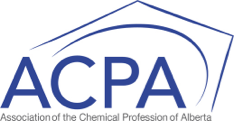What does it mean to be regulated?
Do you know the difference between organizations like the ACPA and the Chemical Institute of Canada?
The ACPA is a self-regulated profession. That means that an act of the Alberta legislature has granted the association the legal authority to set standards for who may enter the profession, to set standards of practice for those who work in the profession, and the right to create rules for when and how members may be sanctioned or removed from the profession. The primary purpose of a regulatory body such as the ACPA is to protect the public from incompetent or unethical practitioners of chemistry.
The Chemical Institute of Canada (CIC) is best described as a learned or scholarly society. It exists to promote an academic discipline or profession by providing networking opportunities, publishing information, conducting research, and staging conferences, seminars and workshops. The association is accountable to its members and has no legislated status.
Both organizations perform useful and complimentary roles but they serve different masters. The regulatory body is there to serve the interest of the public; the learned society is there to serve the interest of its members. They are not the same, and the potential for conflict of interest between the two mandates often requires government to separate the two types of associations.
In Canada, the regulation of professions derives from provincial authorities.
REFERENCE: Balthazard, Claude, What Does It Mean to Be Regulated?, Human Resources Professionals Association, 2010
